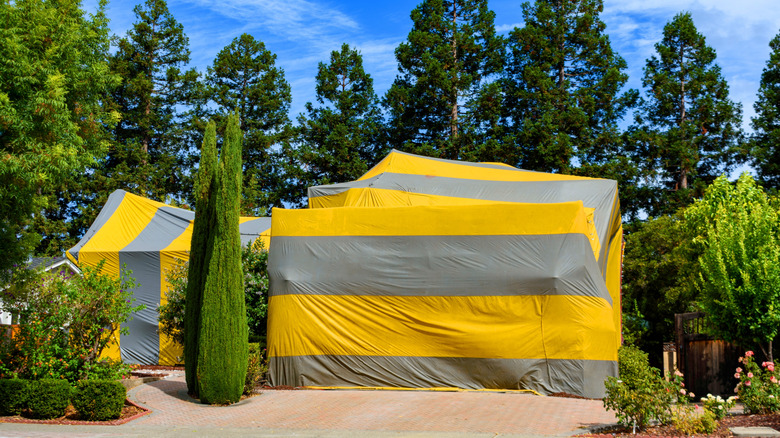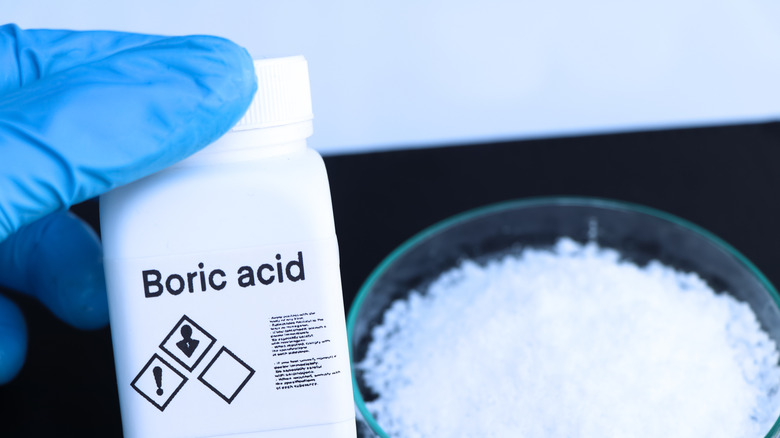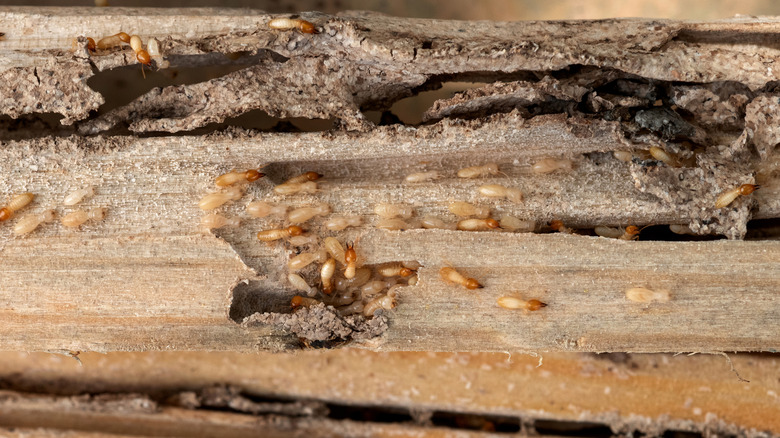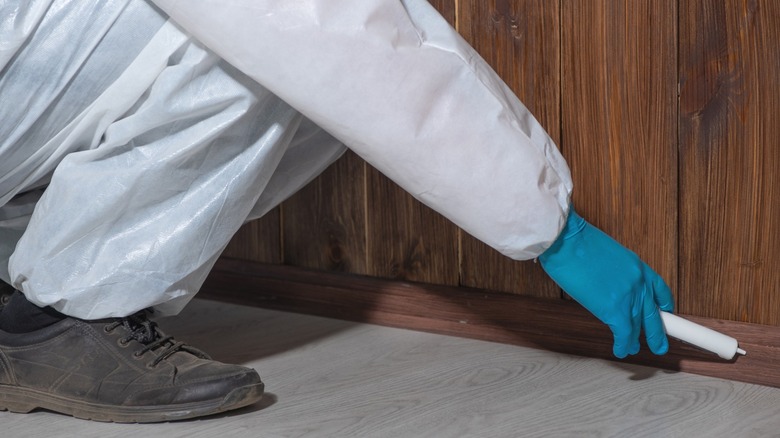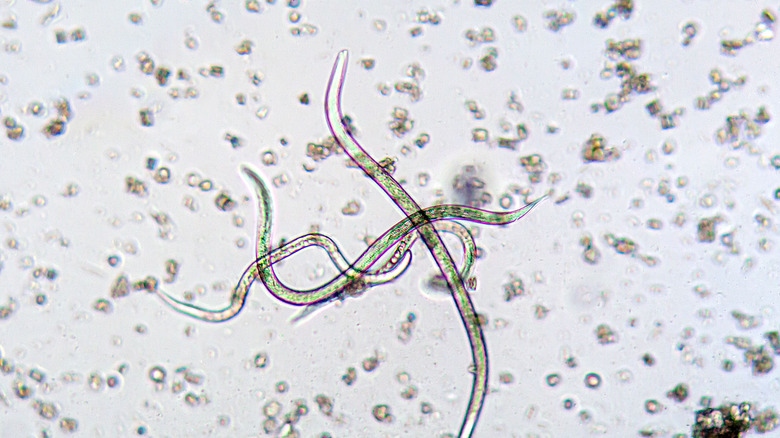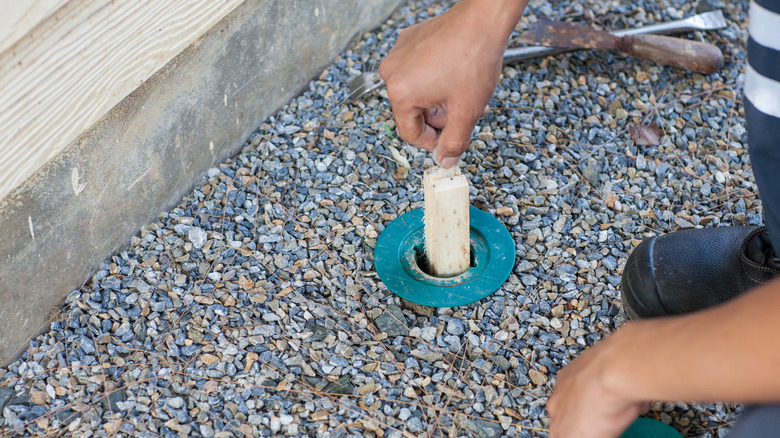How To Get Rid Of Termites Without Tenting: 5 Alternative Methods To Try
Spotting telltale signs of termites like droppings, damaged wood, and mud tubes just might be every homeowner's worst nightmare. Termites can wreak havoc on your home by devouring wooden floors, structures, and roofs. Not only are these issues expensive, but they can be dangerous too, as termites can cause enough damage to cause parts of your house to collapse if left unchecked. And, as if that's not bad enough, termite infestations can be detrimental to your health, as allergic reactions, respiratory problems, and even infections can be caused by these pesky insects. A very common way to deal with termites is to fumigate your home, a process also known as tenting. However, sometimes this termite solution can be just as difficult to deal with as the infestation itself. Tenting is expensive, you'll have to be out of your home for several days, and it can also have negative health effects. Fortunately, there are a few other solutions for getting rid of termites without tenting such as setting bait traps and even unleashing other microscopic animals on the termites to take down the colony.
In lieu of fumigation, many homeowners instead choose to spot treat the wood itself with different liquids and solutions to take down termites. These are convenient solutions because they mean you won't have to be out of your home, or fill it with toxic gases. There are also some treatments that are similar to fumigation, but don't use toxic chemicals. Here are a few of the best ways to get rid of termites without tenting.
Apply boric acid to termite infested wood
For smaller infestations that are limited to just one area, boric acid can be a great way to take down termites. Additionally, it's possible to easily do a boric acid DIY treatment for termites. All you need to do is get a syringe, fill it with boric acid, and inject it into the places you suspect there may be termites. You can also apply boric acid to any mud tubes you have outside your house to kill the termites. If you try this method, keep in mind that the boric acid may kill your grass.
The downside of using boric acid to treat termites is that it won't work for larger infestations. Because you're treating the wood locally, if the termites have buried deep into hard to reach places of your home, there's no way you're going to be able to get to them with a syringe and some boric acid. Additionally, you will have to repeat any borax treatments a few times for it to be effective — it's not a one and done solution. With that said, it is still a good way to deal with termites, as you won't have to leave your home like with tenting, and it can even help protect your home from termites in the future. One thing to keep in mind is that while it's technically natural, it can make humans and pets sick when ingested or inhaled and can cause skin irritation, so be sure to use gloves when handling borax or boric acid.
Give your home a heat treatment
If you've had the misfortune of dealing with a larger termite infestation, odds are a spot treatment like injecting borax into the wood isn't going to cut it. However, that doesn't mean that you have to jump straight into fumigation. To avoid the tenting process that involves filling your house with toxic gases, you can instead do a heat treatment. Because termites can't survive in temperatures over 130 degrees Fahrenheit, a heat treatment is a highly effective method of eradicating a termite infestation. In addition to the fact that a heat treatment is a non-toxic way of dealing with termites, another benefit is that it can be slightly more thorough than fumigation. For example, fumigation kills adult termites, but it doesn't kill termite eggs. Even after you go through the trouble of having your house tented, your termite problem may not even be fully dealt with. Another pro of having your home heat treated for termites rather than fumigated is that you won't have to spend as much time out of your home.
While having your home heat treated is a great way to deal with termites, it's not without its downsides. Unfortunately, having your home heat treated for termites is going to be expensive. Additionally, it might take a little bit of extra preparation to have your home ready, because you'll have to remove any of your belongings that are heat sensitive. However, despite its downsides, heat treatment is a great alternative to traditional tenting if you want to get rid of termites in your home.
Inject orange oil into your wood
Similar to using boric acid to get rid of termites, orange oil treatment is also in the category of wood spot treatments. While boric acid kills termites by damaging their digestion, the D-Limonene in orange oil actually breaks down their exoskeletons. The process of eradicating termites with orange oil is very similar to the process of using boric acid. First, the areas of your home that have termites must be identified. Then, the orange oil needs to be injected into the wood that the termites are living in, which will involve drilling into the wood. This is a potential downside for anyone who doesn't want to cause any further damage to their wood by drilling into it. However, if you can look past having to drill into your wood, using orange oil to eliminate termites can be effective for a very localized termite infestation — but only if it's a small one, and it may take several treatments.
Because you have to physically treat the wood that the termites are living in, orange oil really is not a feasible solution for larger infestations where you need to take down whole colonies of termites. For example, you won't be able to get the orange oil into hard to reach places of the home, which is where there may be many termites living. While it's a great solution for smaller infestations and you don't need to use a lot of it, in larger quantities it can get pricey, and at that point you may want to consider other solutions.
Take down the colony with nematodes
Nematodes are tiny microscopic animals that are incredibly adept at killing termites. In fact, according to research, they may even be one of the best ways to kill termites. To use nematodes to get rid of termites you'll have to mix up a solution of nematodes and water. Then, you'll need to apply the solution to all areas of wood that are affected by the termites. Once the nematodes have been unleashed onto the colony of termites, they'll get to work slowly killing the termites. Keep in mind that using nematodes to get rid of termites is not a one and done solution, and for the best results, you should reapply the solution to termite infested wood daily.
While using nematodes definitely will put a dent in your termite infestation, some pest control experts question the efficiency of using nematodes to take down an entire colony. Another potential issue with using nematodes to get rid of termites is that it might be slightly counterproductive to spray water onto the wood of your home that has already been damaged by termites. Even with that in mind, nematodes are still a great alternative to tenting.
Set bait traps
If you're looking for a solution to get rid of termites that's not fumigation but don't really like the idea of heat treating your house or spot treating the wood, another method of getting rid of termites is to set traps for them. Keep in mind these aren't necessarily traps per se, but rather bait stations for the termites. Termite bait traps typically contain cellulose, which is the ingredient in wood that termites simply can't get enough of, and an insecticide that kills them. When termite bait traps have been properly placed around the home or yard, they're highly effective at killing termites. Essentially, the worker termites who are off searching for food will find the traps, bring the food back to the colony, and all of the termites will slowly be killed by the insecticide.
Although bait traps are an effective way of ridding your home of termites without fumigating, they're not without their downsides. For one, many termite bait traps may be toxic for animals due to the insecticides they contain. Additionally, bait traps for termites are not a quick fix. In fact, it can actually take several months for the insecticide to make its way through the whole colony and completely eradicate your termite problem. If you're dealing with a severe termite infestation, you probably don't want the insects to wreak havoc on the structure of your home for another two to three months, and understandably so. Even with their flaws in mind, bait drops are still a very effective alternative to tenting for getting rid of termites.
